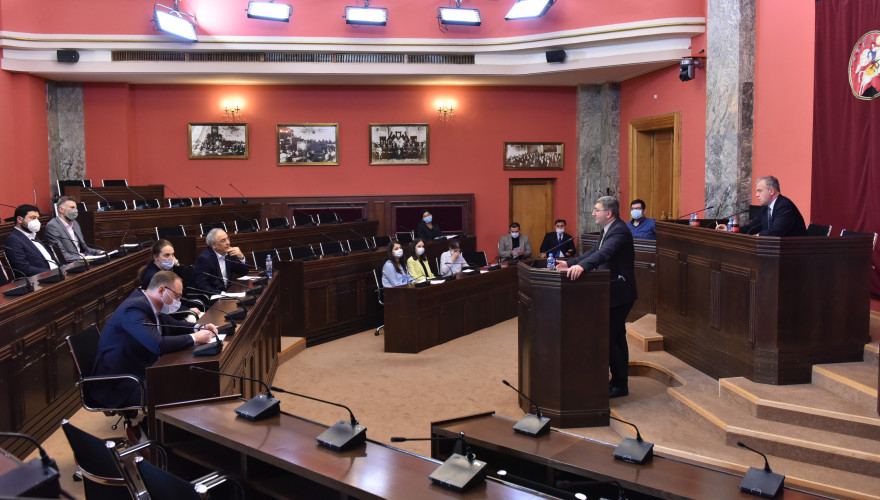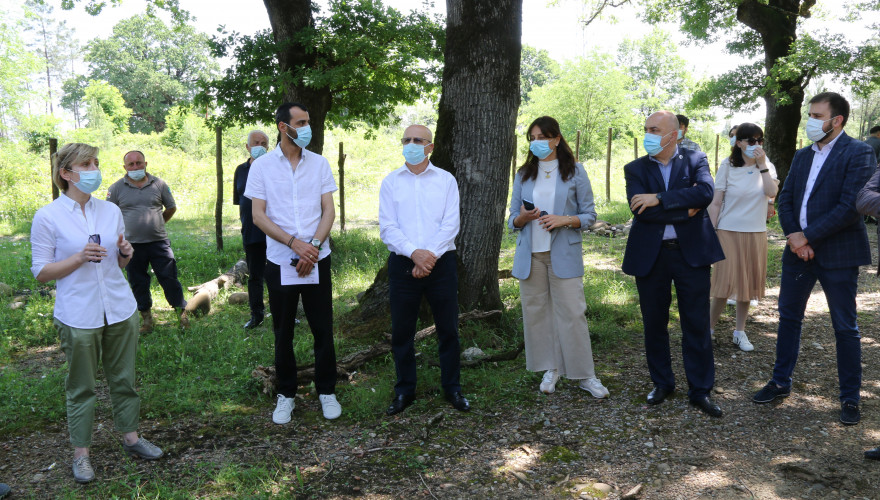The sitting of the Foreign Relations Committee

At the sitting presided by the First Deputy Chair, Giorgi Khelashvili, the Committee discussed the Rejection Letter and the Change N1 to the Financial Agreement (Kutaisi Sewerage) between Georgia and EIB of October 15, 2015, introduced by the Deputy Finance Minister, Giorgi Kakauridze.
The document envisages the allocation of the loan of 100 ml EURO by the EIB to ensure rehabilitation of the sewerage system in Kutaisi.
The Agreement provided the project implementation term of 2016-2020 but due to the certain suspensions related to the tender, the term is extended. It entailed the change to the Agreement extending the loan transfer term from December 23, 2020, to December 23, 2024, and the project implementation term as 2021-2026.
The draft letter envisages the rejection of the request of the first minimal transfer only by the donor.
The Committee discussed the Changes to the Loan Agreement between Georgia and AIIB, according to which LIBOR quotation will no longer be requested at the London Bank Market and EURIBOR may as well be annulled.
The maintenance of the correspondence between the financing and the expenditures, the Bank is to develop the alternative rate envisaging the changes to the Agreement. The change stipulates that the Bank shall apply the respective basic rate and margin for every currency determined in a reasonable manner without the new financial liability for the debtor.
The Committee discussed the Bill on State Compensation and State Academic Scholarship introduced by the Deputy Foreign Minister, Khatuna Totladze.
The Bill eliminates the gaps in the Law and aims at the correspondence of the calculation rule of the state compensation for the person with the high diplomatic rank with the objective of the Law – the state compensation shall serve as a guarantee of social protection for the Georgian citizens for their special service to the country.
At present, the state compensation for the persons with the high diplomatic rank at the age of 65 constitutes one-third of the average salary he/she had in the last year of his/her service, which is often equal to the low salaries as they were 15-20 years ago. It puts these persons of various ages in an unequal situation.
Thus, the change envisages the compensation to be calculated from the salary for the respective position for the moment of establishment of the compensation.
The Committee considers that the Bill will eliminate the discrimination in the Law and approved the documents.





